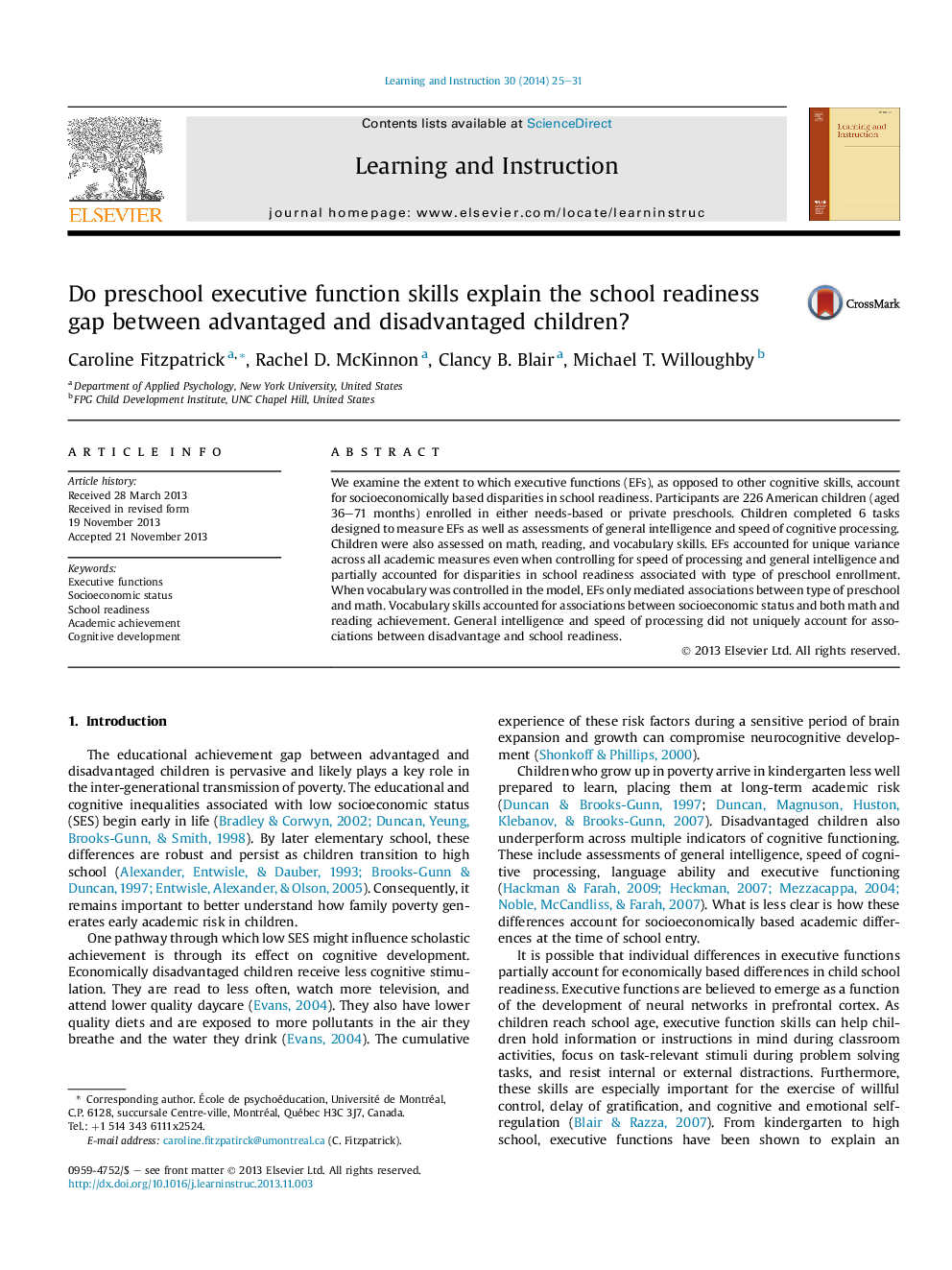| Article ID | Journal | Published Year | Pages | File Type |
|---|---|---|---|---|
| 365593 | Learning and Instruction | 2014 | 7 Pages |
•Children who grow up in poverty show deficits in executive functioning (EF).•We examined how EF and other cognitive skills account for academic performance.•Child EF predicted school readiness beyond SES and other cognitive skills.•EF partially accounted for associations between SES and math performance.•Child preschool EF may partially explain economically-based achievement gaps.
We examine the extent to which executive functions (EFs), as opposed to other cognitive skills, account for socioeconomically based disparities in school readiness. Participants are 226 American children (aged 36–71 months) enrolled in either needs-based or private preschools. Children completed 6 tasks designed to measure EFs as well as assessments of general intelligence and speed of cognitive processing. Children were also assessed on math, reading, and vocabulary skills. EFs accounted for unique variance across all academic measures even when controlling for speed of processing and general intelligence and partially accounted for disparities in school readiness associated with type of preschool enrollment. When vocabulary was controlled in the model, EFs only mediated associations between type of preschool and math. Vocabulary skills accounted for associations between socioeconomic status and both math and reading achievement. General intelligence and speed of processing did not uniquely account for associations between disadvantage and school readiness.
